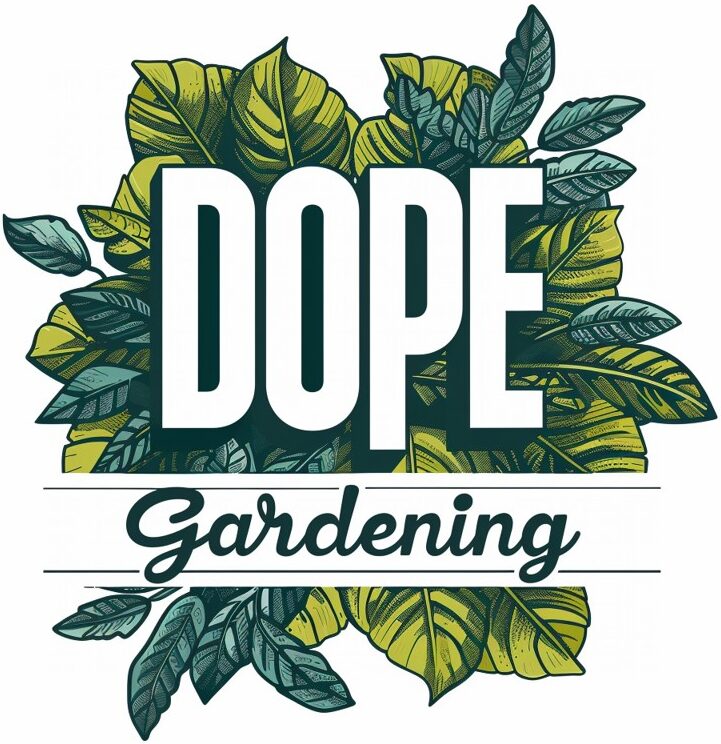Do You Wash Eggshells Before Putting in the Garden? Tips for Gardeners
Eggshells can be a fantastic addition to your garden as an organic fertilizer. They provide calcium and other nutrients that help your plants thrive. But do you wash eggshells before putting them in the garden? Yes, you should wash them. Cleaning the eggshells removes any leftover egg white or yolk that might attract pests or smell bad.
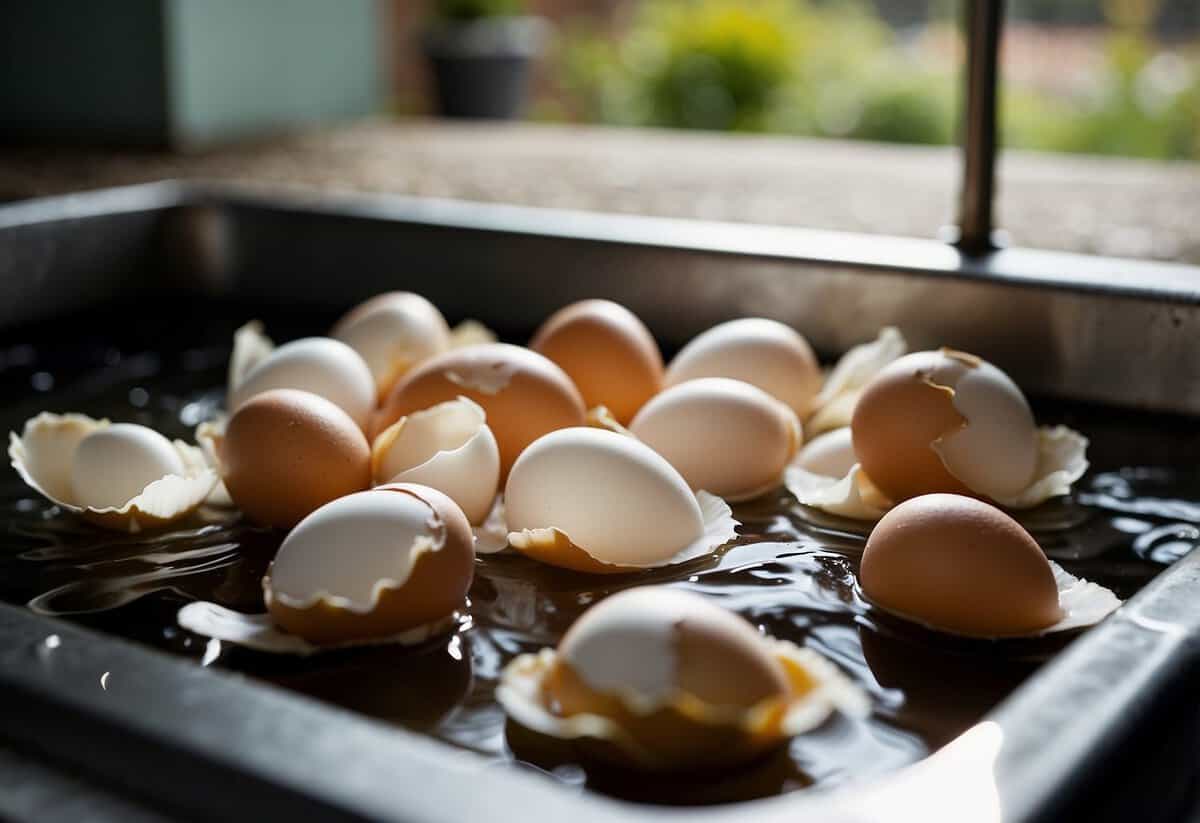
Once you’ve washed your eggshells, you can crush them into small pieces or grind them into a fine powder. Both methods help the nutrients break down more quickly and become available to your plants sooner. Some gardeners even bake the shells to ensure they’re completely dry and free of bacteria before using them.
Using eggshells in your garden is an easy and eco-friendly way to recycle kitchen waste and boost your soil’s health. Whether you’re sprinkling them around your plants or mixing them into the soil, your garden will benefit from the added calcium and other minerals.
The Benefits of Eggshells in Your Garden

Using eggshells in your garden can provide essential nutrients and aid in plant growth. They can help enrich the soil with calcium and support the development of strong plant roots.
Enriching Soil with Calcium
Eggshells are rich in calcium carbonate, which is vital for maintaining healthy soil. When you crush eggshells into a fine powder and mix them into the soil, they slowly release calcium. This helps to balance the soil’s pH and improve its structure.
Tomatoes, peppers, and eggplants benefit significantly from calcium-enriched soil. It prevents blossom end rot, a common problem caused by calcium deficiency. By adding eggshells, you provide a natural way to boost your garden’s health without using chemical fertilizers.
To prepare the eggshells, rinse them thoroughly and let them dry. Once dry, crush them into a powder and sprinkle the powder around your plants. This method ensures that the nutrients are released steadily.
Aiding Plant Growth
In addition to enriching the soil, eggshells also aid plant growth by providing essential nutrients for root development. When mixed into the soil, the calcium from the eggshells makes it easier for roots to absorb water and nutrients.
Healthy roots mean stronger plants that can withstand pests and diseases better. Besides, the calcium content helps plants grow more robust stems and leaves, leading to healthier overall development.
You can also crush eggshells and mix them with water to create an eggshell solution. Pour this solution around your plants to give them an extra calcium boost. This is particularly useful for plants like tomatoes, which have high calcium needs.
Using eggshells is an eco-friendly way to recycle kitchen waste and improve your garden’s soil quality. By incorporating this simple practice into your gardening routine, you can enjoy healthier plants and a more productive garden.
Preparation of Eggshells for the Garden
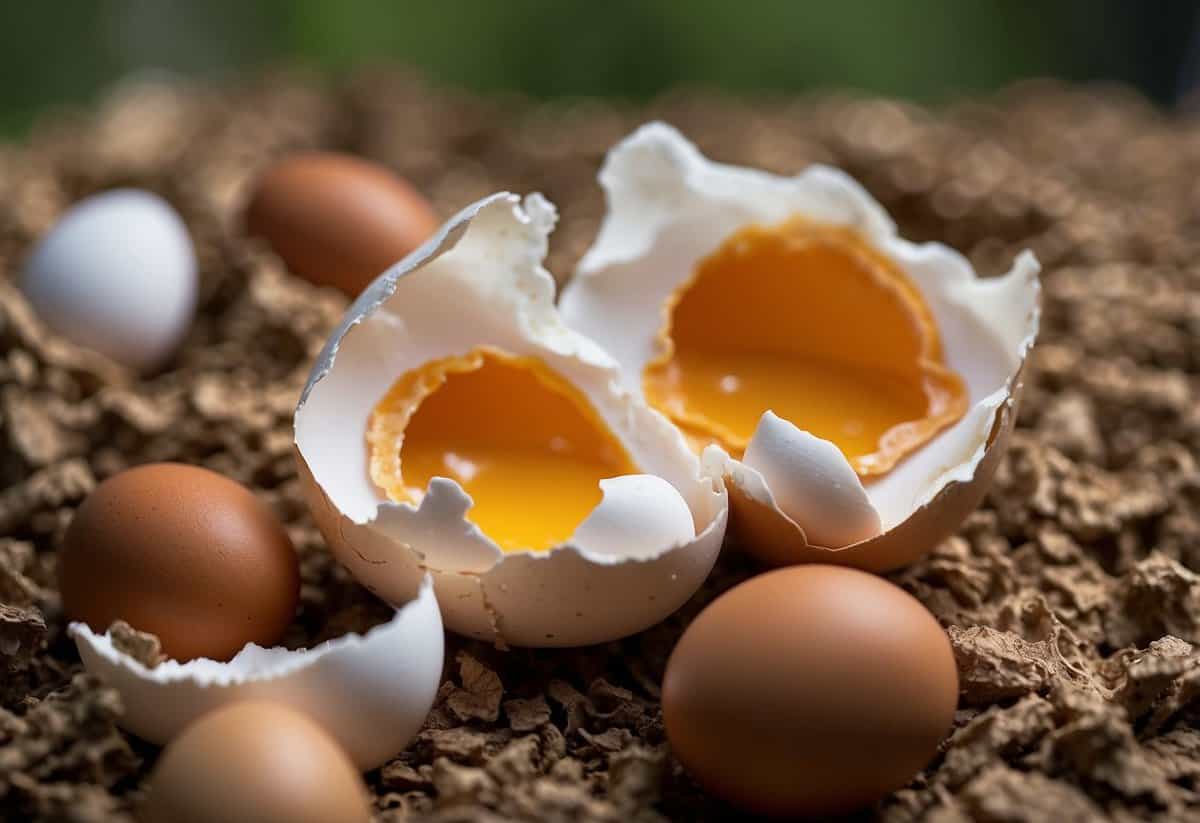
Properly preparing eggshells before adding them to your garden ensures you get the most benefits from them. This includes cleaning, drying, crushing, and pulverizing.
Cleaning and Drying
Start by rinsing leftover eggshells with warm water. This removes any egg residue which could attract pests or cause an odor. Place the cleaned shells in an open container like a bowl to let them air dry.
To further sanitize and dry the eggshells, bake them in the oven. Set the oven to 170.6°F to kill any bacteria, including salmonella. Bake the shells for about 10 minutes. This step also makes them easier to crush.
Crushing and Pulverizing
Once the eggshells are dry, begin crushing them. You can do this manually with your hands or a rolling pin. For a finer texture, use a food processor or a blender to pulverize them into a powder.
Crushed or powdered eggshells can be easily mixed into garden soil or compost. Fine eggshell powder is especially useful for providing calcium to your plants, enhancing their growth. You can also create a liquid fertilizer by boiling crushed eggshells in water, then letting the mixture steep overnight.
Incorporating Eggshells into Composting
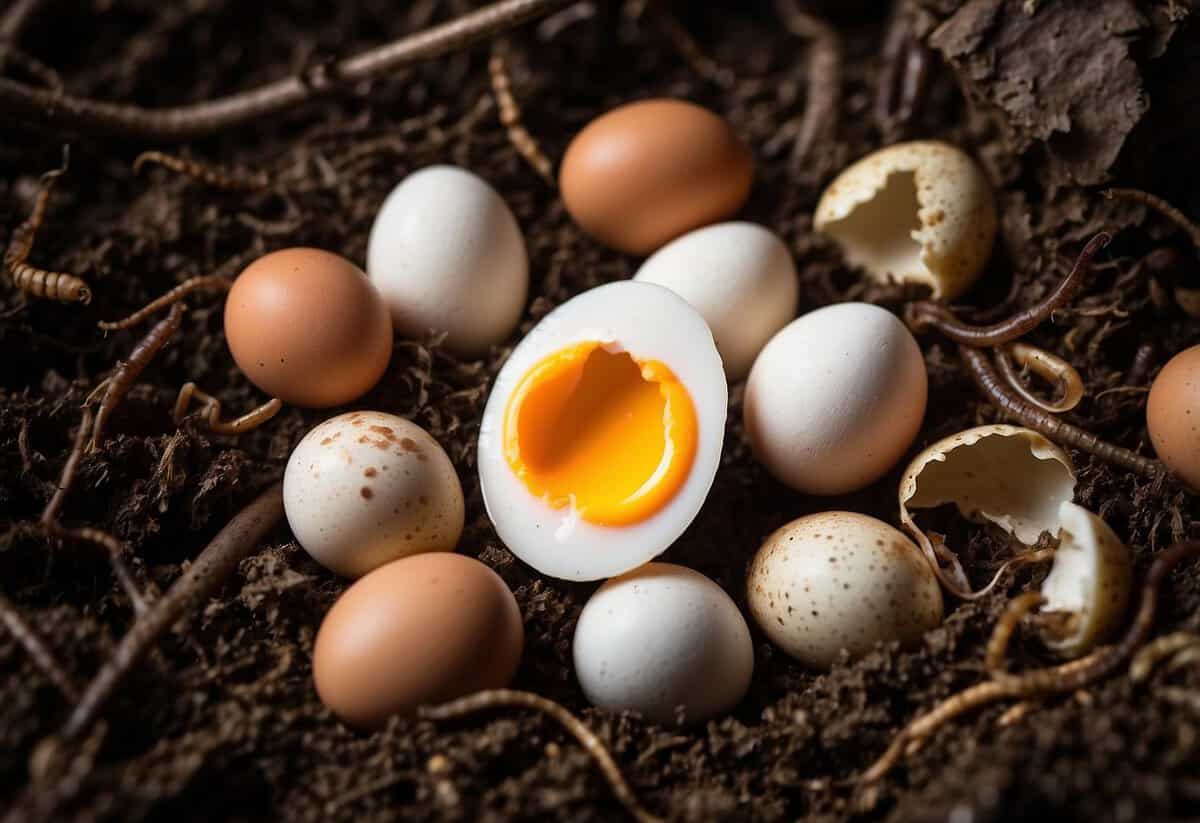
When adding eggshells to your compost, they provide valuable nutrients and improve soil texture and drainage. Here’s how eggshells can benefit your composting efforts.
Boosting Compost Nutrients
Eggshells are a rich source of calcium. This mineral is vital for plant cell wall development and overall health.
When you add crushed eggshells to your compost, they break down and release calcium, nitrogen, magnesium, and phosphorus. These nutrients are essential for plant growth.
High calcium levels in your compost help prevent issues like blossom end rot in tomatoes and peppers. The extra calcium strengthens the cell walls of plants, making them more resilient.
Eggshells don’t decompose as quickly as other compost materials. Crushing them before adding to your compost speeds up this process, ensuring quicker nutrient availability for your plants.
To maximize benefits, crush and dry your eggshells before mixing them with other compost materials. This preparation allows for quicker and more complete decomposition.
Improving Soil Texture and Drainage
Adding eggshells to compost also enhances the texture and drainage of your soil. Crushed eggshells help create air pockets in the compost, improving soil aeration.
Better aeration means your plants’ roots get sufficient oxygen, promoting healthier growth. The structure of the eggshells prevents soil compaction, ensuring that water drains more effectively.
Improved drainage helps keep your soil from becoming waterlogged, which can lead to root rot and other plant diseases. By incorporating eggshells into your compost, you enhance overall soil quality and support robust plant growth.
Incorporating eggshells is a simple way to boost your compost’s effectiveness and your garden’s productivity. By enhancing the texture and drainage of your soil, you create a better environment for your plants to thrive.
Using Eggshells for Pest Control and Plant Protection
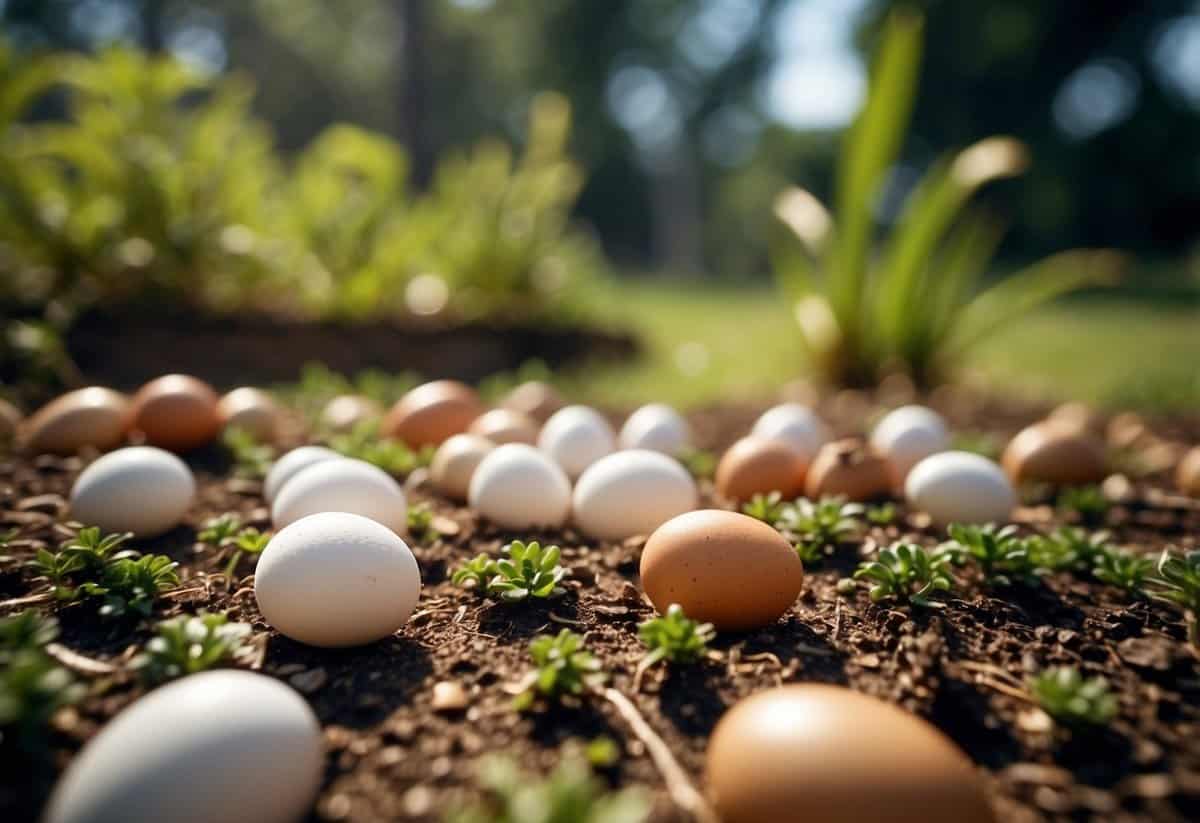
Using eggshells in your garden can help protect your plants from both small pests like slugs and larger critters like deer. By creating barriers and deterrents, you can maintain a healthier garden with minimal effort.
Natural Barrier Against Pests
Eggshells make an effective natural barrier against pests such as slugs and snails. When crushed and sprinkled around the base of your plants, the sharp edges of the eggshells deter these pests from crossing. The rough texture makes it uncomfortable for pests to move over, protecting your plants from damage.
Cutworms, which can harm young seedlings, are also deterred by the presence of eggshell fragments. To protect your plants, create a ring of crushed eggshells around the base. This simple, chemical-free method can significantly reduce pest invasions.
Using eggshells for pest control is affordable and eco-friendly. Instead of using chemical pesticides, which can harm other beneficial insects, eggshells provide a safe alternative. Just remember to wash and dry the shells before use to prevent any unwanted bacteria.
Deterrent for Larger Critters
Eggshells aren’t just for small pests; they can also help deter larger critters like deer and rodents. When dealing with deer, spreading crushed eggshells in the garden can create an unpleasant environment. The smell and texture might discourage them from nibbling on your plants.
For rodents, the sharp edges of the eggshells can be a mild deterrent. While not as effective as for slugs, it’s still worth a try, especially in combination with other natural deterrents. Ensuring the eggshells are finely crushed can increase their effectiveness against these bigger garden vandals.
In summary, incorporating eggshells into your gardening routine can aid in protecting plants from a variety of threats. Just wash, dry, and crush your eggshells, then spread them around to enjoy a safer, healthier garden.
